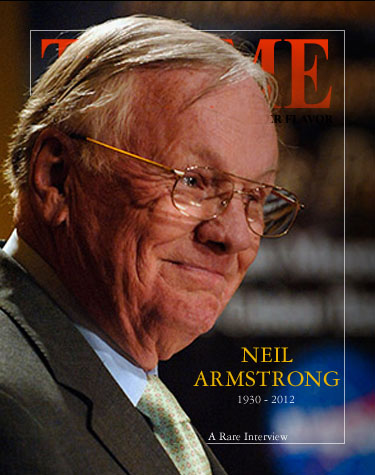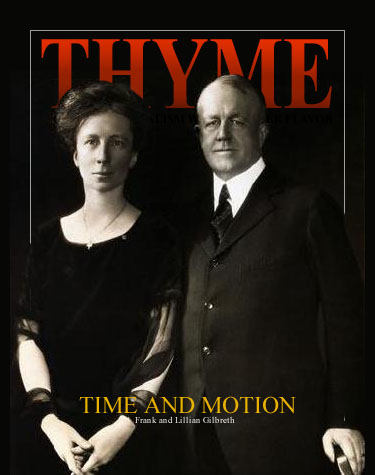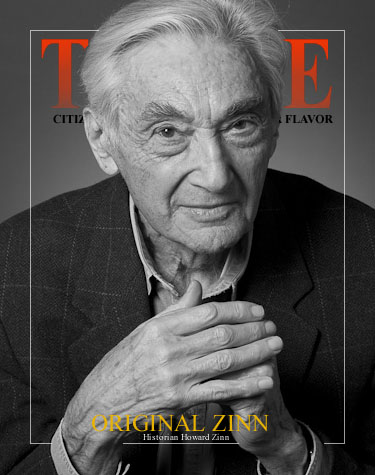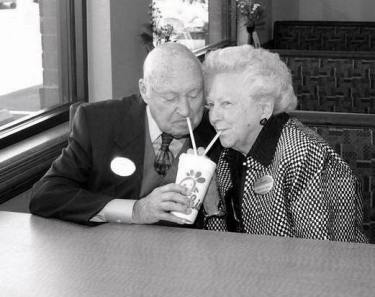Citizen Journalism with a Better Flavor
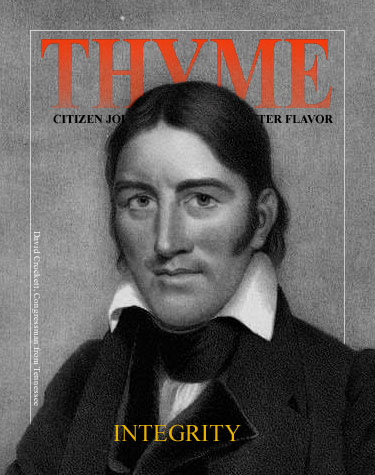
Volume VIII, Issue XII
INTEGRITY: Special Election Issue
Davy Crockett's speech to Congress about the 'Indian Bill.' We need more like him!
The scene above is one of my all-time favorites from the movie starring
Fess Parker. It brings tears to my eyes as Parker's portrayal of
Davy Crockett shows us how a man of integrity stands on his word, even when it costs him his political career! As we move toward an important Senate Race it is imperative that we seek out men and women of integrity today. Watch the scene above if you haven't already. It is a model for what we need to restore to our civic discourse today.
The real skalwags in this here capital of the brave and free is us! YOU and ME, and I'm the worst of the lot!" -- Fess Parker as Davy Crockett, addressing Congress regarding the 1830 Indian Removal Bill.
David Crockett's Speech
by Rep. Dana Rohrabacher
Mr. Speaker, below is the text of a detailed report of a speech given on the floor of the House of Representatives that I believe will be of interest to my colleagues. The description was included in a book titled
``Speeches on the Passage of the Bill for the Removal of the Indians,'' published by Perkins and Marvin in 1830. The speech was given by Rep. David Crockett of Tennessee on May 19, 1830, in opposition to the Indian Removal Act. Unfortunately, the Congress disregarded Crockett's objections and passed the bill, which was then signed into law by President Jackson.A Sketch of the Remarks of the Hon. David Crockett, Representative From
Tennessee, on the Bill for the Removal of the Indians, Made in the House of Representatives:
Mr. Crockett said, that, considering his very humble abilities, it might be expected that he should content himself with a silent vote; but, situated as he was, in relation to his colleagues, he felt it to be a duty to himself to explain the motives which governed him in the vote he should give on this bill. Gentlemen had already discussed the treaty-making power; and had done it much more ably than he could pretend to do. He should not therefore enter on that subject, but would merely make an explanation as to the reasons of his vote, He did not know whether a man (that is, a member of Congress) within 500 miles of his residence would give a similar vote; but he knew, at the same time, that he should give that vote with a clear conscience. He had his constituents to settle with, he was aware; and should like to please them as well as other gentlemen; but he had also a settlement to make at the bar of his God; and what his conscience dictated to be just and right he would do, be the consequences what they might. He believed that the people who had been kind enough to give him their suffrages, supposed him to be an honest man, or they would not have chosen him. If so, they could not but expect that he should act in the way he thought honest and right. He had always viewed the native Indian tribes of this country as a sovereign people. He believed they had been recognised as such from the very foundation of this government, and the United States were bound by treaty to protect them; it was their duty to do so. And as to giving to giving the money of the American people for the purpose of removing them in the manner proposed, he would not do it. He would do that only for which he could answer to his G-d. Whether he could answer it before the people was comparatively nothing, though it was a great satisfaction to him to have the approbation of his constituents. Mr. Crockett said he had served for seven years in a legislative body. But from the first hour he had entered a legislative hall, he had never known what party was in legislation; and G-d forbid he ever should. He went for the good of the country, and for that only. What he did as a legislator, he did conscientiously. He should love to go with his colleagues, and with the West and the South generally, if he could; but he never would let party govern him in a question of this great consequence. He had many objections to the bill--some of them of a very serious character.
One was, that he did not like to put half a million of money into the hands of the Executive, to be used in a manner which nobody could foresee, and which Congress was not to control. Another objection was, he did not wish to depart from from the foundation of the government. He considered the present application as the last alternative for these poor remnants of a once powerful people. Their only chance of aid was at the hands of Congress. Should its members turn a deaf ear to their cries, misery must be their fate. That was his candid opinion. Mr. Crockett said he was often forcibly reminded of the remark made by the famous Red Jacket, in the rotundo of this building, where he was shown the pannel which represented in sculpture the first landing of the Pilgrims, with an Indian chief presenting to them an ear of corn, in token of friendly welcome. The aged Indian said
``that was good.'' The Indian said, he knew that they came from the Great Spirit, and he was willing to share the soil with his brothers from over the great water. But when he turned round to another panel representing Penn's treaty, he said
``Ah! all's gone now.'' There was a great deal of truth in this short saying; and the present bill was a strong commentary upon it. Mr. Crockett said that four counties of his district bordered on the Chickasaw country. He knew many of their tribe; and nothing should ever induce him to vote to drive them west of the Mississippi. He did not know what sort of a country it was in which they were to be settled. He would willingly appropriate money in order to send proper persons to examine the country. And when this had been done, and a fair and free treaty had been made with the tribes if they were desirous of removing, he would vote an appropriation of any sum necessary; but till this had been done, he would not vote one cent. He could not clearly understand the extent of this bill. It seemed to go to the removal of all the Indians, in any State east of the Mississippi river, in which the United States owned any land; Now, there was a considerable number of them still neglected; there was a considerable number of them in Tennessee, and the United States' government owned no land in that State, north and east of the congressional reservation line. No man could be more willing to see them remove than he was if it could be done in a manner agreeable to themselves; but not otherwise.
He knew personally that a part of the tribe of the Cherokees were unwilling to go. When the proposal was made to them, they said,
``No; we will take death here at our homes. Let them come and tomahawk us here at home: we are willing to die, but never to remove.'' He had heard them use this language. Many different constructions might be put upon this bill. One of the first things which had set him against the bill, was the letter from the secretary of war to colonel Montgomery--from which it appeared that the Indians had been intruded upon. Orders had been issued to turn them all off except the heads of the Indian families, or such as possessed improvements Government had taken measures to purchase land from the Indians who had gone to Arkansas. If this bill should pass, the same plan would be carried further; they would send and buy them out, and put white men upon their land. It had never been known that white men and Indians could live together; and in this case, the Indians were to have no privileges allowed them, while the white men were to have all. Now, if this was not oppression with a vengeance, he did not know what was. It was the language of the bill, and of its friends, that the Indians were not to be driven off against their will. He knew the Indians were unwilling to go: and therefore he could not consent to place them in a situation where they would be obliged to go. He could not stand that. He knew that he stood alone, having, perhaps, none of his colleagues from his state agreeing in sentiment. He could not help that. He knew that he should return to his home glad and light in heart, if he voted against the bill. He felt that it was his wish and purpose to serve his constituents honestly, according to the light of his conscience.
The moment he should exchange his conscience for mere party views, he hoped his Maker would no longer suffer him to exist. He spoke the truth in saying so. If he should be the only member of that House who voted against the bill, and the only man in the United States who disapproved it, he would still vote against it; and it would be matter of rejoicing to him till the day he died, that he had given the vote. He had been told that he should be prostrated; but if so, he would have the consolation of conscience. He would obey that power, and gloried in the deed. He cared not for popularity, unless it could be obtained by upright means. He had seen much to disgust him here; and he did not wish to represent his fellow citizens, unless he could be permitted to act conscientiously. He had been told that he did not understand English grammar. That was very true. He had never been six months at school in his life; he had raised himself by the labor of his hands. But he did not, on that account, yield upon his privilege as the representative of freemen on this floor. Humble as he was, he meant to exercise his privilege. He had been charged with not representing his constituents. If the fact was so, the error
(said Mr. Crockett) is here,
(touching his head) not here
(laying his hand upon his heart). He never had possessed wealth or education, but he had ever been animated by an independent spirit; and he trusted to prove it on the present occasion.
[1.]
5th Grader Takes on 'Nanny State'
Eleven year old
Grace Karaffa is not exactly a stranger to politics. Her father is Augusta County Supervisor
David Karaffa, who ran for the office as an independent to restore integrity to local politics. His campaign stressed open dialogue and the practical addressing of issues, even when doing so was hard. Since second grade, Grace has suffered from bleeding lips and this causes her quite a bit of discomfort in school. When she asked if she could use Chapstick, she was told that it was not allowed. She could not use the over the counter lip balm because it was
'prohibited' as it was considered a
'medication.' Grace was forced to wet her cracked and bleeding lips in the school washroom as an alternative.
This year, encouraged by her father, Grace brought a petition before the Augusta County School Board asking for the ban on lip balm to be overturned. Citing concerns that students might
'share' medications, the board responded saying they would study the matter. We at THYME have covered
'Nanny State' overreach before, most notably the
Wendy's Incident [click to read] but it tends to remain a local story, for the most part.
Fox News [click to read], however picked up on Grace's petition, as did
Independent Journalism Review [click to read]. The eleven year old's campaign had gone viral!
'Of the People'
Public Servants Should Remember Who They Serve
I grew up with
Davy Crockett as a hero. I still remember the part where he rode through the night to defeat the
Indian Bill, a bad piece of legislation that cost him his congressional career for opposing it. Davy Crockett was one of us! There was no question.
Fast forward to the past few elections and you have two
'public servants' who let their hair down with their elite buddies and say things like:
"You go into some of these small towns in Pennsylvania, and like a lot of small towns in the Midwest, the jobs have been gone now for 25 years and nothing’s replaced them. … And it’s not surprising then they get bitter, they cling to guns or religion or antipathy to people who aren’t like them or anti-immigrant sentiment or anti-trade sentiment as a way to explain their frustrations." [2.]
Or consider this quote:
"One of the things you are going to see is a coalition that is just about completely taken over the Republican Party in this state and if they have their way it’s going to take over state government. It is made up of the Christian Coalition, but not just them. It is made up of the right-to-lifers, but not just them. It’s made up of the NRA, but not just them. It is made up of the home-schoolers, but not just them. It’s made up of a whole coalition of people that have all sorts of differing views that I think most of us in this room would find threatening to what it means to be an American." [3.]
Scary stuff! The man responsible for the second quote is sitting in the U. S. Senate from the State of Virginia. He once ran ads saying that then Senator Obama
"respects" your Second Amendment rights! But even though he claims to be a
'moderate,' Senator Warner's voting record says otherwise. His vote gave us Obamacare, in spite of strong appeals
(I went to his office with a lot of other people) to do otherwise. He has voted with the President 97% of the time, yet the media this fall will paint him as a Centrist!
Home schoolers, dangerous?, I've had home schoolers and former home schoolers work in our model shop and I can tell from the above quote that
Mark Warner has far less experience with home schoolers than I do. I've seen fifteen year old kids who've developed professional proficiency and have pretty good heads on their shoulders to boot! I think I'll send Senator Warner a copy of Alvin Schmidt's book
Under the Influence. I think there are many spiritual underpinnings to what it means to be an American. I don't think Governor Warner's coctail crowd should be so afraid of us.
In the early Nineteenth Century, Crockett's
Tennessee was the
Alaska of its day, sitting on the frontier with hostile forces beyond. I'll bet you their were no teenagers working out their angst either. Young people were working the farms and defending them. So, once again in troubled times, should we look to the frontier for leadership? I think so!
Still, it is not surprising that the press will repackage
Elite Liberals as
'Centrists' as the election approaches. They all read
Howard Zinn [1.] together in school and are steeped in his narrative. A recent piece I read by
Gerry Warburg preaches:
Lessons in the Wake of Watergate.
[2.] It is interesting reading. Warburg went to Washington as a young Democrat aide in the wake of Nixon's resignation. He helped write Jimmy Carter's nuclear policy bill. Warburg calls those years:
"...a time of national renewal. In crisis there is opportunity: Reformers of all political persuasions helped advance crucial measures..." So, while Warburg admits to the need for deficit reduction his call for
"informed voters" to elect
"Centrist" candidates needs some analysis.
In 2009, the Tea Party sounded the alarm about rising government debt and the folly of larger government. The media has worked overtime to marginalize it. Does Warburg not see that the activists from all backgrounds today are often calling for a return to Constitutional principles and a reigning in of the government as part of an overall strategy to return health to the country? President Obama took with him to Washington over fifty of the most overtly Leftist Idiologues as Czars. The media yawned. The
IRS was employed to hobble the Conservative movement. The media yawned.
Eric Holder's Justice Department ignored the
New Black Panther Party suppression of white voters in Philadelphia. Rioters 'rightfully' burn down their neighborhood when a white policeman kills a black youth but hundreds of kids die in these neighborhoods at the hands of people the same race and the media yawns. The suspicious nature of
Benghazi,
'Fast and Furious' Extortion 17 and the arm-twisting passage of the so-called
"Affordable Care Act" might cause one to pause and ask": "What did Nixon do, again?"
Indeed, if one honestly considers
Richard M. Nixon's place in history, the Watergate break-ins seem to be JV league compared to the weight of the present documented scandals. Warburg might do well to remember that Nixon, aside from Watergate, actually embodies the true Center-Right candidate. Under Nixon's leadership, the
Environmental Protection Agency began. Nixon also is known for the controversial Wage/Price Controls, under which Insurance as an employment benefit became cemented. Rubbing shoulders with
Robert C. Byrd, he should have realized where much of the ensconced racism of this country resided. In conclusion, I would have to agree with
Gerry Warburg's desire for an informed electorate, but I would caution the media to report honestly and let the informed electorate, not the pundits, decide who is
'extreme.'
Serge Belo's Amazing Mosaic
To raise awareness among the general public about the global clean water crisis, the artist Serge Belo created an image composed of 66,000 cups of colored rainwater. (Contributed by Kristina Elaine Riley).
Wes Stafford in his book:
Too Small to Ignore [click to read] speaks with affection of the time he lived in Africa with his missionary parents. One of his most cherished memories was digging out a well for a village with his father. Tired and muddy, they submitted their story to their mission board's newsletter. Sadly the newsletter overlooked this wonderful story and did not publish it. So many people in the world today would be spared so much suffering if they could just be provided with clean water! And clean water is such a practical testimony of G-d's Love!
Stafford went on to found
Compassion International [click to read] and they have helped a lot of children with the basic necessities such as clean water, bringing the Love of G-d to their communities in practical acts of service. To this day,
Wes Stafford and his partners continue to embrace the muddy work of building the Kingdom of G-d! But still, digging wells and fencing out cattle is often overlooked as a work of the Kingdom.
To raise awareness among the general public about the global clean water crisis, the artist
Serge Belo created an image composed of 66,000 cups of colored rainwater simulating levels of impurities found in water all over the planet. This major work of 3,600 square feet, representing a baby in the maternal womb, emphasizes the necessity of water, even before birth, for each living person.
Does My Vote Matter?
Imagine the impact Americans of faith can have on the future of our nation, the character of its leadership, and the health of its families if we all applied biblical principles to every aspect of our lives — including committing to vote.
Commit to Vote 2014 [click to read]
